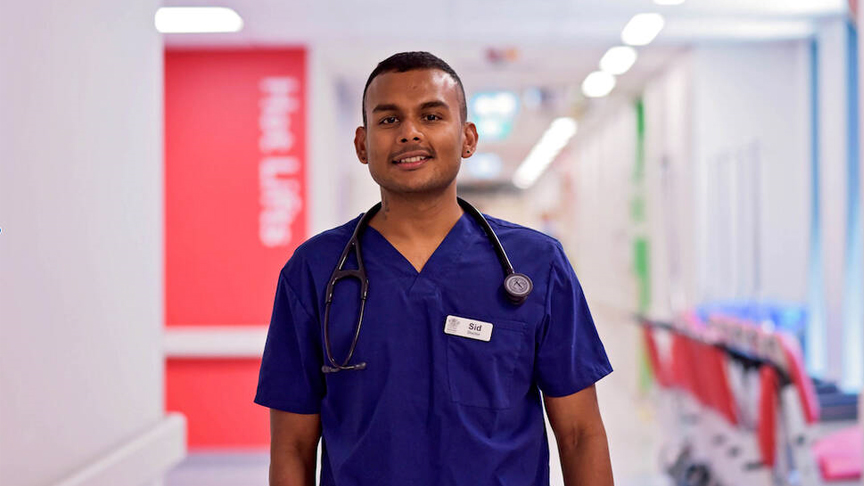
Sunshine Coast Hospital and Health Service (SCHHS) Resident Medical Officer Dr Sid Kaladharan has set in motion an inspiring sequence of work to help ensure equitable representation and cultural safety in genomics research.
Dr Kaladharan, who is an international medical graduate with SCHHS, said it was his passion for improving access to healthcare for marginalised sections of society that led him to co-author his recent research article – Developing guidelines for genomic research with Aboriginal and Torres Strait Islander people.
“I believe that genomics is the future of healthcare and whole genome sequencing and its use in care delivery is the key to personalised and precision medicine.
“We have already made some leaps in genomics, but one downside is that most of the studies and experiments into genomics have been conducted in western countries, and thus have heavily involved those of European decent.
“This disparity in research has led to a lack of genomic reference data for our Indigenous and First Nation communities, not just within Australia, but globally. Already, significant health and social disparities exist between Aboriginal and Torres Strait Islander people and non-Indigenous Australians and this further disadvantages the community from the advancements in genomics and precision medicine.
“Our team, led by an Indigenous researcher, Mr Gregory Pratt from QIMR Berghofer Medical Research Institute, wanted to start the discussion and involve the Indigenous communities to dictate how they want to be involved when we progress this technology.
“This led to the GenetiQs study funded by the Queensland Government, which after extensive consultative and co-design process from communities, researchers, clinicians and other stakeholders across the state, led to the creation of the Genomic Partnership Guideline document.
“Now, the Australian Government is building on our work to create a national framework, ensuring cultural safety when conducting genomics research in partnership with Aboriginal and Torres Strait Islander peoples.
“Being from a Culturally and Linguistically Diverse background myself, it is important that our future posterity shouldn’t have to go through the tribulations and discriminations we have. It may sound a touch cliché, but I do believe that everyone belongs.”
Dr Kaladharan is a proud member of the SCHHS Diversity and Inclusion Working Group, which he said is not only aimed at affecting positive change but is also about celebrating differences among our community.
“We celebrate the uniqueness and extraordinary diversity of people's bodies, ethnicities, genders, sexualities, and lived experiences that they hold and the identities these represent.
“I strongly believe that it is important to have these working groups within a health service, as it gives voices to those who have been on the margins of society for a considerable amount of time.
“Representation matters in bringing forth wider systemic change. I wouldn’t have been able to come this far and do what I do if it wasn’t for my predecessors, my ethnic brothers and sisters and LGBTIQA+ leaders, all of whom have tirelessly advocated for people like me and my peers to feel embraced and part of the team as we walk these halls.
“SCHHS is leading this space, as a diverse and safe workplace for multicultural employees, with exemplary initiatives and campaigns to ensure that ‘everyone belongs’, and I am very appreciative for the opportunity to start my residency here and incredibly proud to be a part of this health service.
“I believe we can continue to lead the way and develop an inclusivity model and action plan at SCHHS, that other health services across the state can emulate,” Dr Kaladharan said.
Dr Kaladharan has also coordinated multiple federal and state funded research projects, including two National Health and Medical Research Council grants.